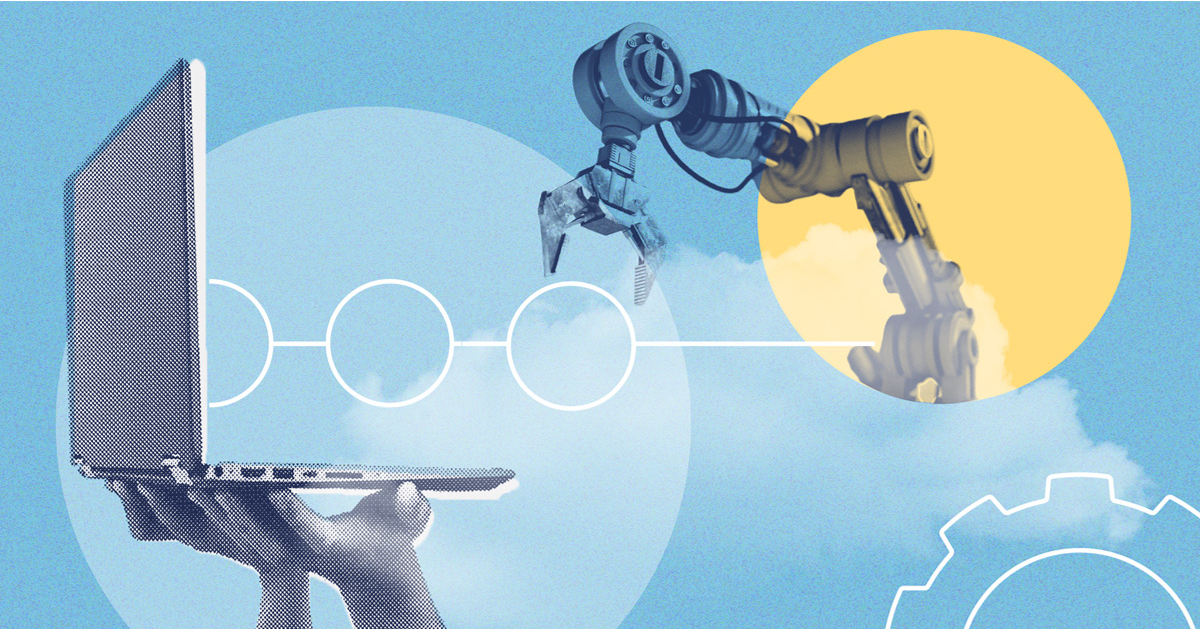Salesforce has grown far beyond its roots as a CRM tool — it’s now a powerful Platform-as-a-Service (PaaS), enabling businesses to build scalable and fully customized applications. But this growth has increased the complexity of the overall development process.
This is where “platform engineering” comes in. By applying platform engineering concepts to Salesforce, businesses can enhance their development processes, reduce cognitive load, and improve release management efficiency.
In this post we’ll explore how platform engineering principles, coupled with Salesforce DevOps tools like Gearset, can help you establish a center of excellence in Salesforce development.
What is platform engineering?
Platform engineering is the discipline of designing, building, and maintaining the foundational infrastructure and tools that allow development teams to build, test, and deploy software with efficiency and security.
Platform engineering helps developers by providing a set of tools, workflows, and processes to streamline development processes.
What’s an Internal Developer Platform (IDP)?
Platform engineers create an Internal Developer Platform (IDP) that helps standardize the development process and allows teams to focus on building features rather than managing infrastructure or tooling.
The IDP takes away the complexities of infrastructure management and tool configuration. Instead of worrying about setting up scratch orgs, managing version control, or handling infrastructure provisioning, developers can leverage the IDP to handle these repetitive tasks for them.
In Salesforce development, an internal developer platform might include:
- Automated creation of scratch orgs for agile development
- A self-service dashboard for deploying changes across sandboxes and production
- Built-in security checks to ensure compliance with organizational and regulatory standards
An IDP significantly boosts productivity by reducing context-switching and manual processes, which are common barriers to efficient Salesforce development.
What’s the difference between platform engineering and DevOps?
Although platform engineering and DevOps share similar goals — both improve the software development lifecycle and enhance productivity — there are some key differences between them.
DevOps is a methodology that promotes collaboration between development and operations teams to streamline the DevOps lifecycle. It focuses on automating workflows, improving release management, and fostering a culture of shared responsibility for system stability. DevOps engineers are typically responsible for CI/CD pipelines, infrastructure as code (IaC), and monitoring.
In contrast, platform engineering takes a more product-centric approach, where platform teams act as a center of excellence to design internal platforms that remove complexity. Platform engineers build the infrastructure and tooling that DevOps engineers and developers use daily, but they focus more on self-service and scalability.
In Salesforce, DevOps engineers focus on the day-to-day operations of CI/CD pipelines, while platform engineers design and maintain the internal platforms that allow these DevOps processes to scale across large development teams.
Is platform engineering replacing DevOps?
Platform engineering isn’t replacing DevOps; rather, it complements it. In Salesforce, this means that platform engineering can take care of setting up infrastructure like scratch org pools, version control integration, and automated compliance checks, while DevOps teams continue to manage day-to-day release management and CI/CD pipelines.
Together, platform engineering and DevOps create a powerful combination that helps organizations balance speed with security and compliance.
How does platform engineering impact Salesforce development?
Salesforce platform engineering plays a crucial role in standardizing the development process, which directly impacts productivity, security, and scalability. Here’s how platform engineering shapes Salesforce development:
Reducing Cognitive Load: By offering pre-configured internal developer platforms, such as self-service scratch orgs and sandbox management tools, platform engineers reduce the number of decisions that developers need to make, allowing them to focus on building business logic.
Improving Compliance: Salesforce is often at the center of business-critical workflows, making compliance with data security regulations essential. Platform engineers can embed security and compliance into the platform by using tools like Shield Platform Encryption and Named Credentials to manage sensitive data securely.
Enhancing CI/CD Pipelines: With platform engineering, Salesforce teams can automate more of their CI/CD processes, making it easier to manage multiple Salesforce orgs, minimize deployment risks, and ensure continuous delivery without bottlenecks.
Facilitating DevSecOps: Platform engineering helps incorporate DevSecOps principles into Salesforce development by embedding security at every stage of the DevOps lifecycle, ensuring that potential vulnerabilities are caught before they become issues.
As businesses grow, so do their Salesforce orgs. Platform engineering helps teams maintain infrastructure at scale, ensuring that Salesforce development processes remain agile, efficient, and compliant.
Salesforce DevOps tooling
Salesforce DevOps tooling is integral to a mature platform engineering strategy. A well-established set of tools can help streamline development, improve change management, and ensure security across the software development lifecycle.
Gearset is a comprehensive DevOps platform that automates deployments, runs tests, manages backups, and handles CI/CD pipelines for Salesforce. With Gearset, teams can also automate change management and integrate version control into their workflows.
Solid DevOps tools help reduce cognitive load by providing centralized, automated processes that scale with your Salesforce org, ensuring that security, compliance, and productivity are maintained.
Apply a platform engineering mindset to a DevOps process
As Salesforce grows more integral to your business, incorporating both platform engineering and DevOps principles can help your organization standardize processes, improve productivity, and remain agile in an increasingly complex technology landscape.
Gearset brings these concepts to life, enabling seamless change management, efficient deployments, and secure, scalable development practices. You can start a 30-day free trial here and try it for yourself.
To discover more about how we can help apply a platform engineering mindset to your Salesforce implementation, check out our DevOps solutions or read our in-depth guide to Salesforce DevOps at enterprise scale.



